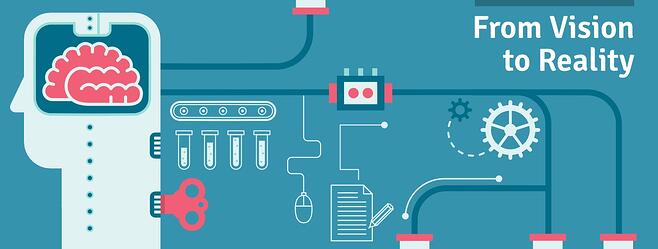"The best part of the CGPP program via CertificationPoint that other student to workforce programs do not offer is allowing students to learn how to sell themselves to a prospective real-world client via RFP's and project bid submissions while earning income at project completion."

Many of the most well-known edtech startups have focused on solving big challenges in higher education. College students trying to navigate the channels for financial aid, loan services, and even finding jobs have turned to apps like Commonbound and Trilogy Education ... ![]()
Type: EduTech Crypto
Posted: July 18, 2023 - 12:11pm

Q: I'm an investor/venture capitalst. How can I get onboard with CertificationPoint?
A: Please contact us at info@certificationpoint.org
Download Our PitchDeck
![]()
Type: Answered Questions
Posted: July 24, 2020 - 11:40pm







| Work Experience Builders Opportunities [Region 1] |
|
REGION1 Experience Builders (Posted): Earn 25 CPNTCoin By Answering The Following PMP certification exam question Budget: $0-$0 -> 2 STUDENT Proposals JOIN In? VIEW All Region 1 Opportunities CREATE An Opportunity April 2025 Stats -> 66 NEW Opportunities Available Today -> 42 Work Experience Builders In Progress MONTHLY TOP SCHOOL: University of the Pacific (CA) MONTHLY TOP Business: T-Mobile USA MONTHLY TOP Experience: Website Management |
| Interactive Analytics |
A: To get a job in artificial intelligence, you'll want to earn a bachelor's degree in computer science or a related major. Also, consider pursuing a postgraduate degree in the field and build your experience and portfolio.
A: Artificial intelligence (AI) refers to the simulation of human intelligence in machines that are programmed to think like humans and mimic their actions. The term may also be applied to any machine that exhibits traits associated with a human mind such as learning and problem-solving.
A: Programming. Whatever Artificial Intelligence career you're looking to pursue developing a strong knowledge of programming languages is a key skill that you need to harness
Database Modelling, Data Warehousing and Data Processing
Machine Learning
Knowledge of Intelligent User Interfaces (IUI)
Problem Solving
A: Learning AI is not an easy task, especially if you're not a programmer, but it's imperative to learn at least some AI. It can be done by all. Courses range from basic understanding to full-blown master's degrees in it. And all agree it can't be avoided.
A: Required Minimum Experience And Education: 5 or more years of experience in related field or any combination or equivalent education, experience, and formal training that allows the candidate to meet the requirements of the job.
A: AI engineering is a vast field, and the artificial intelligence engineer's responsibilities include problem-solving by creating innovative AI products. They are also responsible for maintaining the existing AI systems and infrastructure.
A: A bachelor's degree in computer science is essential for any employment in artificial intelligence. Many companies and enterprises prefer a Master's or higher degree in computer science for the same position. A solid portfolio or prior programming skills might serve as an alternative to a master's degree.
A: It may be beneficial to learn to code in Python before learning artificial intelligence. The Python programming language is frequently used in AI programming. AI also requires a strong foundation in math, statistics, and data structures. A good AI course covers all of these topics, as well as programming.
A: AI is essentially a lot of math, consisting of algorithms, calculations, and other types of data. This is the back end or behind-the-scenes training that most people don't see. However, in the same way you must train your human teams, you must train your AI.
A: Python and Java are both languages that are widely used for AI. The choice between the programming languages depends on how you plan to implement AI. For example, in the case of data analysis, you would probably go with Python.
A: Narrow AI or ANI
Artificial general intelligence or AGI
Strong AI or ASI
Reactive machines
Limited memory
Theory of mind
Self-awareness